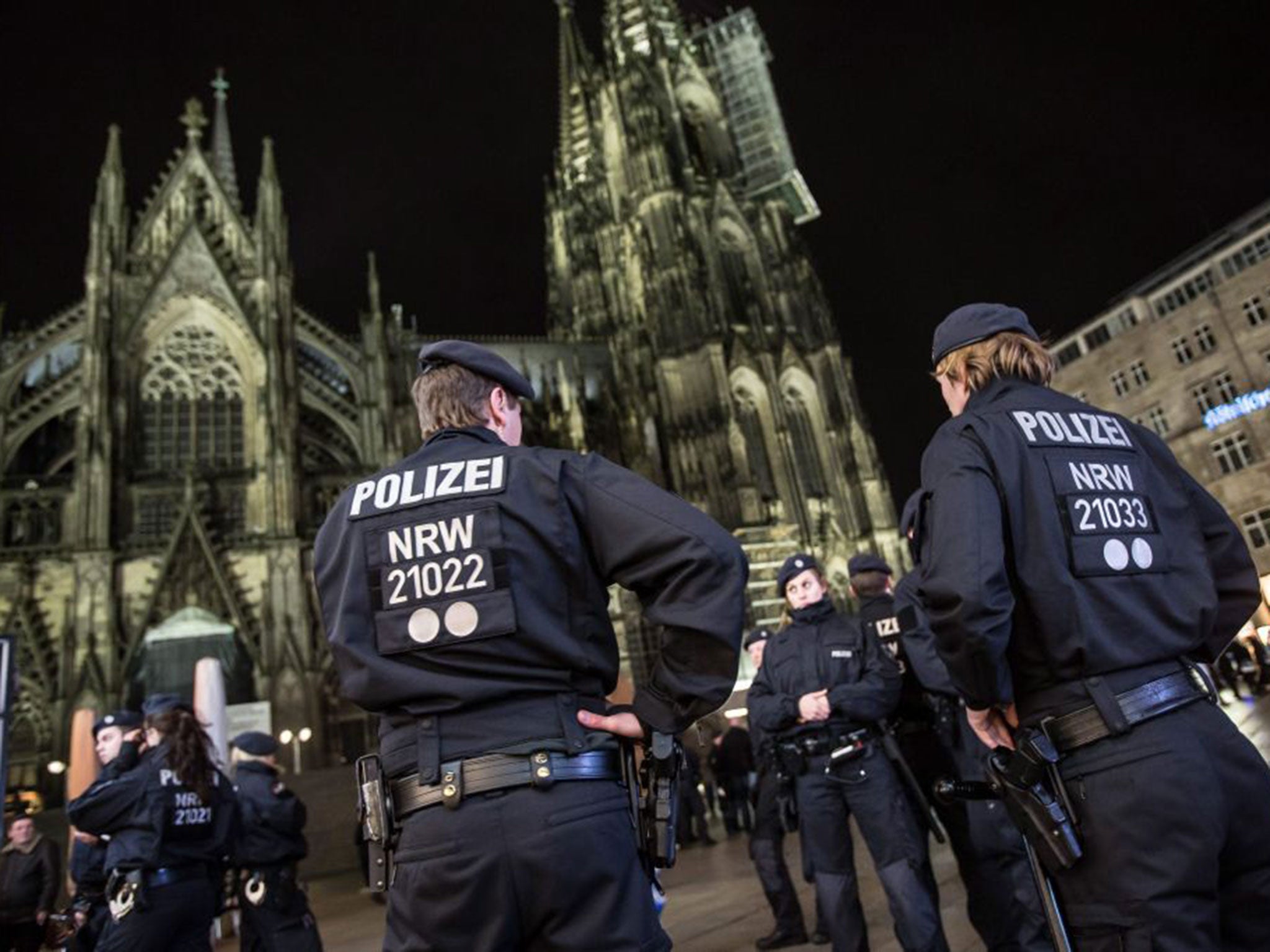Cologne: Three out of 58 men arrested over mass sex attack on New Year's Eve were refugees from Syria or Iraq
Majority of suspects are of Algerian, Tunisian or Moroccan descent and none had recently arrived in Germany, police have reportedly said

Your support helps us to tell the story
From reproductive rights to climate change to Big Tech, The Independent is on the ground when the story is developing. Whether it's investigating the financials of Elon Musk's pro-Trump PAC or producing our latest documentary, 'The A Word', which shines a light on the American women fighting for reproductive rights, we know how important it is to parse out the facts from the messaging.
At such a critical moment in US history, we need reporters on the ground. Your donation allows us to keep sending journalists to speak to both sides of the story.
The Independent is trusted by Americans across the entire political spectrum. And unlike many other quality news outlets, we choose not to lock Americans out of our reporting and analysis with paywalls. We believe quality journalism should be available to everyone, paid for by those who can afford it.
Your support makes all the difference.Three of the 58 suspects arrested in connection with the mass sex attack on women in Cologne on New Year’s Eve were refugees from Iraq or Syria.
Refugees have been widely targetted following more than 1,000 reports of theft, sex assault and rape of women at Cologne’s central train station - leading to a hardening of attitudes towards Chancellor Angela Merkel’s open door policy.
On Sunday, it emerged that of those arrested only two had recently arrived from Syria and one from Iraq.
The majority of the suspects were of Algerian (25 people), Tunisian (3) or Moroccan (21) origin and three were German citizens, according to Cologne public prosecutor Ulrich Bremer.
Speaking to German newspaper Die Welt, he said that of 1,054 complaints received, 600 were connected to theft rather than a sexual offence.
On Monday, Mr Bremer dismissed how his remarks had been reported, saying that the overwhelming majority of those arrested "fall into the general category of refugees".
He said some had entered Germany saying they wanted to apply for asylum while others have formally filed an application.
A refugee is commonly understood to mean either an individual who has been granted asylum or someone who has fled a conflict zone.
In January, the German government backed plans to include three north African states - Algeria, Morocco and Tunisia - on a list of 2safe countries of origin", meaning people form those nations would be highly unlikely to be granted asylum.
Cologne’s newly installed police chief Jurgen Mathies said the technique of hemming women in and cutting them off from their friends did appear to have come from countries where “they might be familiar with this behaviour”.
He said he had never seen it in Germany before.
He said there was no evidence the attacks were premeditated and believes it was “transmitted through social networks".
“A few people did in fact say, ‘hey, we’re going to Cologne, there’s going to be a big party’”, he explained.
A total of 1,075 criminal complaints have been filed, including 467 alleging crimes of a sexual nature ranging from insults to rape.
Since the attacks, German far-right groups have capitalised on increased feelings of mistrust towards refugees with Pegida using the attacks to stage mass anti-immigration marches through Europe.
The increased animosity has forced Ms Merkel to scale back her welcome towards refugees - in late January she agreed a deal with her coalition partners to speed up deportations of failed asylum seekers and restrict family reunions for people granted partial protection.
It comes as the police reported 22 cases of sexual assault at the Cologne carnival - including a Belgian TV reporter who was groped live on air by man who appeared to be of European descent.
Join our commenting forum
Join thought-provoking conversations, follow other Independent readers and see their replies
Comments